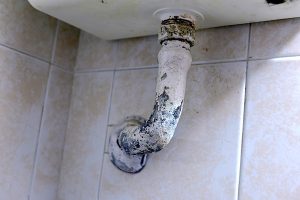You want cleaner water? You’re about to pay for it.
As early as January, customers of the Fayette County Water System — including Peachtree City and Tyrone — will be facing an estimated 8 percent increase in water rates.
The increase is needed to pay for the installation of a magnetic ion exchange (MiEx) system to improve the removal total organic compounds from the county’s drinking water.
The $9.5 million project is necessary to meet new federal clean water requirements from the U.S. Environmental Protection Agency, according to Water System Director Tony Parrott.
The project involves installations at both the Crosstown and South Fayette water treatment plants. Depending on the timing of the project, the rates might not need to be raised until closer to summertime, county officials said at Monday’s budget hearing convened by the Fayette County Commission.
Of the $9.5 million cost, the county will get $6 million in low-interest loans; the remaining $3.5 million will come from the water department’s renewal and extension fund.
Had the county financed the entire project, the water bill increase would stand to be significantly higher than as currently planned.
Because the project is so far away, the commission has not yet had a discussion on how exactly it will raise the water rates. There are multiple options, including an increase in the per gallon rate, an increase in the base charge or a combination of the two.
The county is also waiting on a go-ahead approval from the Georgia Environmental Protection Division, which oversees drinking water facilities.
In recent months, the county has only violated the restriction on total organic compounds once. But Water System Director Parrott said the county is fortunate because the standard is based on the “average” of several test results over a three-month period.
“We don’t pass every time, but we average out, so we’re passing quarterly,” Parrott said. “It’s that close.”
And starting in 2013 the testing parameters will further intensify, which necessitates the need for the MiEx system, Parrott said.
To prove the MiEx system works, a contractor came to the south Fayette water treatment plant and installed a portable system temporarily. The results were satisfying enough that officials pulled the trigger towards installing a permanent system at both water treatment plants.










Leave a Comment
You must be logged in to post a comment.